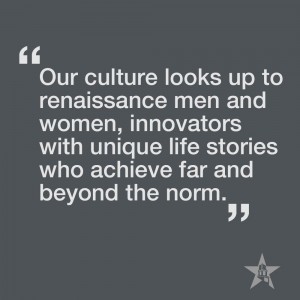 This past Wednesday was HELP Day, the day upon which I usually rollover in my bed at about 10 am and sleep-think to myself, “Why can’t this day occur on a Friday so we can have a long weekend?” This year, however, I was awakened early to the realization of what HELP Day signified in my life.
This past Wednesday was HELP Day, the day upon which I usually rollover in my bed at about 10 am and sleep-think to myself, “Why can’t this day occur on a Friday so we can have a long weekend?” This year, however, I was awakened early to the realization of what HELP Day signified in my life.
I had a senior seminar group critique that was rescheduled to take place on HELP Day. My fellow art majors and I are in the process of preparing our work for the senior show, with a looming deadline set in late April. There are times when I feel as though my past years of art classes have been leading me towards this ultimate goal, as they should, and then there are times when I feel that I’ve been dropped into my senior year at random, scrambling to fully realize what my art is even about. In that respect, all of us in the group seemed to be testing the waters that day. As an example of print size for some of our projects, Professor Rhett pulled out an image he had printed. It depicted a ripped and weathered manuscript covered in what looked like Sanskrit. He explained that it was recently discovered sheet music, written in organ tablature notation by a 15-year-old Johann Sebastian Bach. “Gee,” said a fellow student, “What am I doing with my life?”
There we were, on the day of preparation for our graduation after four long years of study, sitting around a table looking over the fruits of our labor, and we were questioning whether or not it had all been one big waste of time. Our culture looks up to Renaissance men and women, innovators with unique life stories who achieve far above and beyond the norm. Benjamin Franklin became a self-made man starting at the tender age of 12, and on top of his numerous contributions to the United States as a country, was also the creator of nine indispensable inventions. Steve Jobs was a college dropout who completely revolutionized the computer industry. Daily our televisions and newsfeeds are filled with stories of one prodigy or another, a 6-year-old who can sing like Aretha Franklin, a Pakistani teen raising awareness for education rights.
It’s a tough standard to be faced with when contemplating the very strong possibility of being unemployed following graduation. Several of my alumni friends searched for over a year before finding a job, and in many cases they were eventually forced to settle for a job they dislike. Two simultaneous and contrasting truths seem to be held in the minds of every 20-something in America right now: first, that they most definitely do not want to be stuck in a 9 to 5 job that they only tolerate in order to pay the bills. They want to change the world. They want to do something that they love. And second, that the job climate is tentative at best, and they’re not entirely certain how they will survive. In light of this paradox, what exactly does a viable career path look like in present day America? “Pulling yourself up by your bootstraps” is no longer a realistic option, or even an option at all.
When I was making my plans for life after high school, whether or not to attend Houghton was not a question. College was what I’d been advised was best since my very first day of kindergarten. My interests in writing and making art were only ever highly encouraged. Not once was I cautioned that I should choose a more marketable subject in which to major. I was told, without hesitation, to follow my dreams. But with the arrival of HELP Day came the knowledge that there is no opportunity guaranteed for me. What has my liberal arts education truly accomplished? It’s made me a “citizen of the world.” It’s encouraged me to think critically. Are these skills that will pay my rent and cover my loans? Or are they only useful to me under circumstances in which I already have a steady income? Please don’t mistake me—I value my years at Houghton. I am grateful for all that I’ve learned here, and for the connections I have made with professors who care about my future and my well-being. I do not doubt for a second that it will pay off—in the long term. Short term, however, I am wondering–what can I do with my life?
